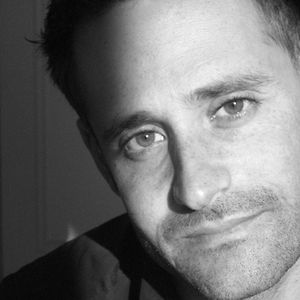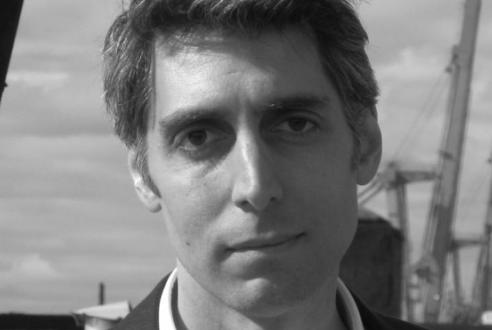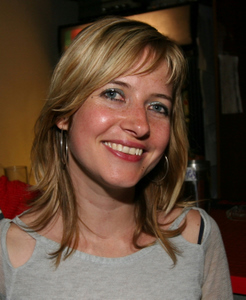Sheila McClear appeared on The Bat Segundo Show #412. She is most recently the author of The Last of the Live Nude Girls.
Listen: Play in new window | Download
Condition of Mr. Segundo: Embracing the diminishing returns of Old New York.
Author: Sheila McClear
Subjects Discussed: Peter Pan Donuts as a point of meaning in one’s life, Hunter S. Thompson and breakfast, Old New York, staying in New York by any means necessary, having unique issues with your parents, having problems with authority, the swift manner in which money disappears in New York, contending with siblings who tap parents for money, personal responsibility vs. economic victimhood, shyness and job interviews, latent rebellion, zoning out during a peep show strip, whether those who work in the nude can be turned on sexually, the many levels of compartmentalization as a stripper, zoning out in relation to performance and being uncomfortable, transactional relationships and comparisons between stripping and psychiatry, writing as a partition between shyness and performance, being charmed by wolves, how long it takes to a Midwesterner to become a true-blue New Yorker, worldliness, not talking with anybody for two weeks, writing about co-workers and allaying concerns, scribbling on the job and maintaining a notebook, memory as a great liar, expanding anecdotes into stories, how patterns inform the narrative, rebelling and dropping out, freedom and reality, being a reg, healthy addictions and obsessions, the advantages of having a focus, McClear’s reluctance to use the words “object” and “objectify,” difficulties with didacticism, the power dynamic between a stripper and a client, dealing with the inevitability of being objectified, losing one’s virginity later in life, working the same peep show stint as a top draw, Fashion Week, the importance of clothes and theatricality in the peep show, the advantages of wearing a schoolgirl skirt, how piercings trick people, guys who read your energy, not being able to hide behind your clothes, dressing like your archetype, subconscious authenticity, making more money when ovulating, the uselessness of wigs, split-second decisions, racism in the peep show industry, racial profiling and men’s sexual preferences, troubling generalizations, race and hiring practices in strip clubs, hygiene at strip clubs, the dangers of mops, sterilizing dollar bills, the necessity of internships to get a foothold in the New York media industry, Ivy League pedigrees, unemployment claims towards Gawker, improving labor conditions for sex workers, exploitation, stage fees, the difficulties of worker organization, what might have happened to McClear without the peep show industry, and the just safe enough nature of peep shows.
EXCERPT FROM SHOW:
McClear: I have problems with all authorities in general. It makes sense.
Correspondent: It makes sense. Your parents were both lawyers. When you were out here trying to survive, did you ever tap them for money? Because that was a question that was never answered in the book.
McClear: My mom gave me two grand when I moved. And every once in a while, she’d send like a hundred dollars in the mail. I never asked them for money. Occasionally, they would send it. No, I would say, other than the two grand — which, God, that disappeared so quickly.
Correspondent: It does in New York. Yeah.
McClear: I already had money too and…well, not a lot. But no. No. I didn’t. It was that and occasional things in the mail. Also my sister was tapping them for a decent amount of money.
Correspondent: Oh, I see. You wanted to be the more respectable sister? (laughs)
McClear: I felt it was unfair to pile on.
Correspondent: Yeah.
McClear: Then there was also the point of, well, at least then I…you know?
Correspondent: Yeah. Yeah. Of other attempts at employment, you write, “It wasn’t as if I didn’t try and do something else.” And I’m curious. To what extent could you be said to be personally responsible for finding work in a peep show? I mean, you were determined to stay in New York by any means necessary. You wanted to prove something to yourself. So obviously you made the decision. So how responsible are you for something like this? Or do you view yourself as a bit of an economic victim?
McClear: Oh, not at all. No one forced me to work there. And it wasn’t my first choice at all. But as I got more and more and more — I mean, everyone has a hard time finding work.
Correspondent: Sure.
McClear; And I probably — I don’t know. I was probably doing something wrong in my job search.
Correspondent: You really think that? I mean, how many resumes did you send? How many job interviews did you go on?
McClear: I don’t know. I think I was so shy back then that I probably came off as bad in an interview. You know, a little awkward. But I was totally — I had this sort of latent thing where I never had rebelled. And I had never been a slacker. I never did drugs really. I never had acted out or been promiscuous. And like there was sort of that going on. And that sort of felt like the first excuse. Especially now that I was by myself and didn’t know anyone to reprimand me or find out what I was doing. It was sort of the first excuse that I found to act out in what was sort of a safe and controlled environment. I took it. And there are other things leading to that decision. Like needing a job and stuff. But I was looking for a way to act out obviously. It had to happen sometime.
Correspondent: Sure.
McClear: Like when people go through their drug phase or their sleeping around phase or their slacker phase. I never did any of it. And I was 25.
Correspondent: You were feeling left out?
McClear: I was feeling left out! And totally uncool. (laughs)
Correspondent: Uncool? I mean, why? I mean, by what metric, if you are so anti-authority, did you feel uncool or not hep or not with it? I mean, who gives a fuck about that?
McClear: I guess I did give a fuck. (laughs)
Correspondent: Many times in the book, you describe zoning out and shutting your brain off during a peep show strip. Of a photography modeling job that steered into an entirely unusual direction…
McClear: (laughs)
Correspondent: …you write, “I had already floated away inside my head, detaching my mind from my body. Nearly three hours had passed before we were done.” But I have to point out even before you arrived in New York, when you performed with the Terranauts in Michigan, you write, “The rush of performing canceled out the noise in my head.” So it seems to me you’re describing here this need to act out. But I should point out that there has been, at least in my reading, this tendency to want to check your brain in or zone out or just not focus. To what degree was it there before you worked in the peep show? And do you think that working at the peep show exacerbated this tendency?
McClear: Yeah. I think it was there. Because my personality type is more of an observer. A little bit of a depressive. And sort of an introverted person. And a tendency to overthink things. Which is probably like…
Correspondent: (laughs) This is going the other way!
McClear: Well, it’s probably describing most writers. So it’s always a vacation if you can find a way — whether it’s meditation or exercise or playing in a band or whatever — to put your mind at ease. But then, of course, being in the peep show was just so — doing the show was much too personal. It was uncomfortable to be present. So I would always check out. And then it did exacerbate that tendency. Just like I described. Of turning a light switch on and off until the breaks. Because you’re like unsure of like “Am I on or off?” Or you can’t toggle between them as much anymore. Which is why I flipped out that one time and went to Bellevue.
Correspondent: Yeah.
McClear: And then I think it just ends up in you withdrawing more. Or just being less present. I actually had a friend who was a nude massage therapist at the time. And she was like, “Um, are you able to be turned on sexually anymore? Because I’m not.”
Correspondent: (laughs)
McClear: And I was like, “Oh. Me neither.” And she was like, “Yeah, I think it’s my job.” “Yeah, probably mine too.”
Correspondent: You couldn’t compartmentalize in any way? That Chelsea [Sheila’s peep show identity] was one type of sex and Sheila was another?
McClear: I could have. But I felt, and I did to an extent, that compartmentalizing too much would almost be like losing some core part of your personality. And I worked with a lot of girls who compartmentalized to the point where they were not the person they used to be before they worked in the business. So I didn’t want to be like that.
The Bat Segundo Show #412: Sheila McClear(Download MP3)




